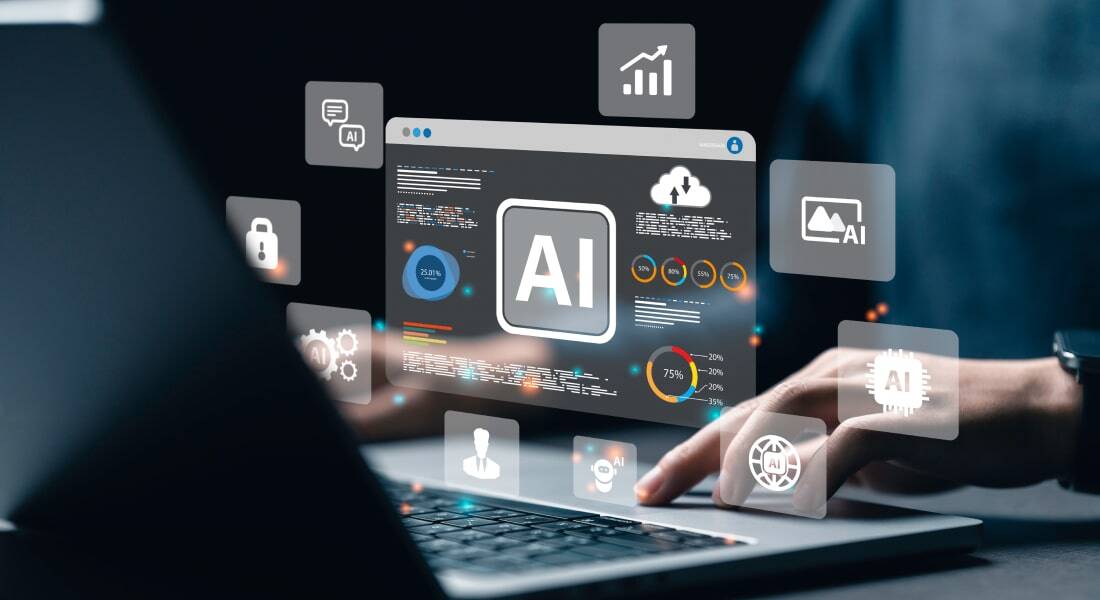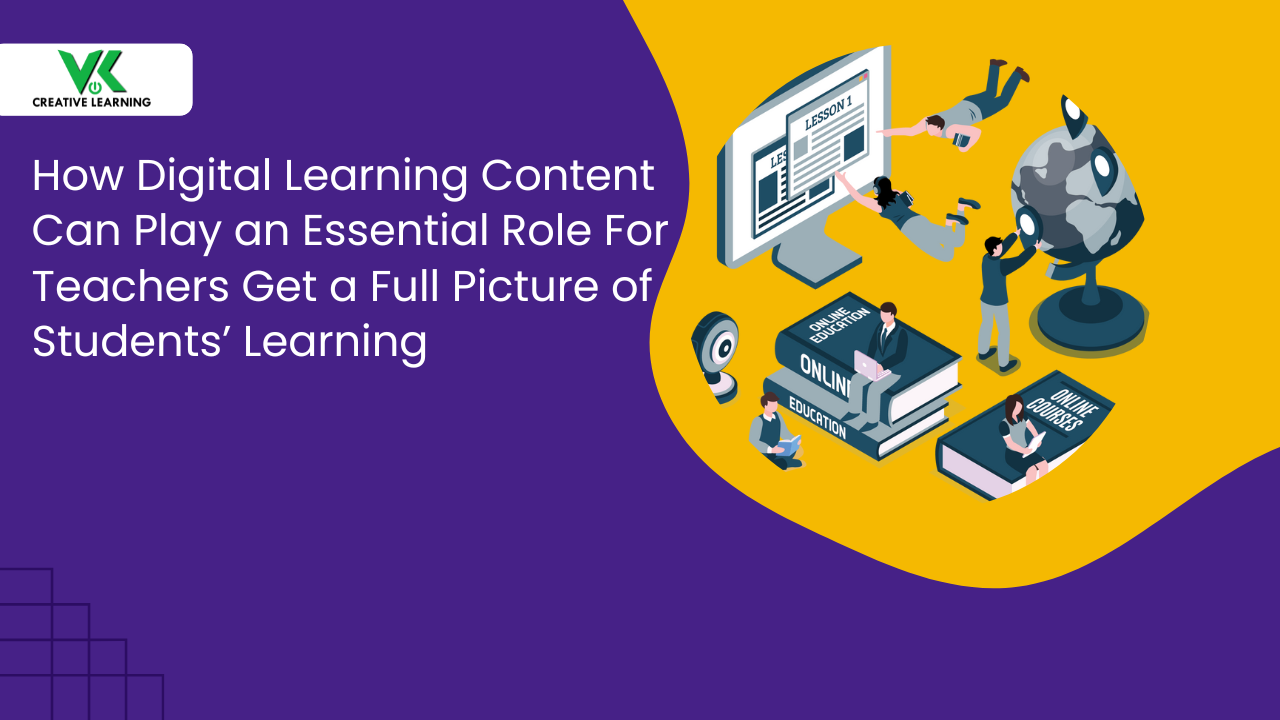AI in Education Digital Assessment Tools: Detailed Analysis and Why They Are Necessary?
June 19, 2025
In today's world, interestingly, AI is continuously transforming educational environments through its intelligent algorithms.
Importantly, these AI in education digital assessment tools are capable of providing instant feedback. This is possible as when learners require more information about topics.
Due to these aspects of AI in education and digital assessment tools, students end up experiencing enhanced motivation. In parallel, their confidence also goes up as they see results immediately. Automated grading technology plays an incredible role as they are part of assessment facets.
Importantly, teachers can utilize data analytics in an advanced course platform, such as e-learning materials, to customize instruction effectively.
This implies: learning will become more personalized as per the learners' style and smoother too.
Table of Contents:
- What Exactly Are AI in Education Digital Assessment Tools? Do They Aid Quick Learning?
- About Automated Grading Technology Based on AI Technology
- AI-Based Digital Assessment Tools' Role in Supporting Teaching and Learning
- Real-Life Examples of Usage of AI in Education Digital Assessment Tools
- Smooth Transition to Digital Assessment Adoption
- Comparing AI Assistants to Human Support
- Driving Educational Technology Advancements
- AI in Education Digital Assessment Tools: Impact on Teaching Practices
What Exactly Are AI in Education Digital Assessment Tools? Do They Aid Quick Learning?
AI in education digital assessment tools are various programmed algorithms that help to evaluate learners' performance and progress in learning. They can be in the form of quiz software with assessment modules and adaptive test engines.
Importantly, they can be helpful to spot learning patterns, understand performance in tests. Using these data, it becomes comfortable and relevant to come up with newly tailored e-learning content. The content will be such that it suits learners' knowledge-absorbing pace and style.
Importantly, these tools don’t just grade -- they decipher learning habits of knowledge seekers. They have algorithms that can swing into action to comb through test/exam data and break down weak areas. Built to plug gaps with precision, they answer provide issues with learning in seconds!
Think of this kind of classroom automation grading system as brainy classroom bots. Interestingly, digital assessment tools closely examine the test and quiz performance and suggest adjustments in content. This way, exams are used by the evaluation system to provide personalised learning journeys.
All in all, these can be seen as advancements in educational tech that utilize cloud-synced systems and provide real-time feedback. In these ways, AI in education digital assessment tools provide multiple opportunities for learners' growth.
About Automated Grading Technology Based on AI Technology
Automated grading technology -- featuring MCQ analyzers, AI-based scoring sheets, etc.-- helps to cut down a lot of manual work. These can be sheet checking, written response sorting, and a cross-checking process.
In fact, it goes beyond trimming extra tasks, it carves out time for teachers to take care of complex academic chores. Result: This trims down repetitive corrections and eases the marking grind.
Thus, teachers don’t have to spend too much of time correcting assessments. The AI-based tool is a kind of evaluator that is calculative and tireless, screening through data. Hence, hours of work turn into minutes through automated systems for teachers.
Thus, AI in education digital assessment tools simplify data capturing. Additionally, it provides features such as visualizers to decipher score trends, students' responses, and heatmaps related to their participation.
Interestingly, e-learning system also encompasses digital assessment tools such as AI for the generation of report cards. It also provides detailed feedback based on students' performance.
With these aspects, teachers can understand the patterns in students' progress levels. Instructors can, then, draw attention to areas that actually need attention.
Moreover, the incorporation of classroom automation using algorithms can be useful for generating quizzes and nudges. That is, repetition prompts are provided based on topics as per the students' understanding.
Also, Q and A can be developed based on different levels of complexity. These steps vastly improve learners’ knowledge base and concretize the concepts.
As a result, support in the form of AI-curated lesson tips, algorithms for lesson planning for teachers, and targeted concept maps can be provided. These features help students to grasp even tough-sounding concepts easily and faster.
AI-Based Digital Assessment Tools' Role in Supporting Teaching and Learning
AI-based educational tools provide specialized personalized feedback loops based on students' previous performance in tests and examinations.
With automated grading technology, teachers become stress-free and can focus on other tasks. These can include coming up with storytelling animation suggestions, or students working on the same projects. Teachers can also create study modules based on different types of themes. These features incorporated in e-learning would align with what grades students have secured.
AI in educational digital assessment tools also assists to develop fascinating types of content. These include 3D explanatory videos, AR/VR-based explanations, and gamified lessons. This plays a major role in aligning with the required students’ learning paths.
Over a period of time, these data can be used for the process of predictive analytics based on students' grades/scores and growth. Thus, students don't feel overwhelmed with multiple topics. Importantly, the K-12 e-learning assessments course allows them to progress at a fast-learning pace.
Real-Life Examples of Usage of AI in Education Digital Assessment Tools
A middle school can use digital quizzes for carrying out instant grading through automated grading technology in e-learning.
Subsequently, based on the inputs from AI, teachers can recommend lesson content changes based on learners' performance analytics.
Thus, students who struggle with understanding can receive extra practice to get complete comprehension.
Additionally, AI in education digital assessment tools can recommend additional resources. These learning materials are designed to align with learners' cognitive level and pace.
Ultimately, AI in e-learning would ensure that quick learning happens through these measures and personalized feedback.
Smooth Transition to Digital Assessment Adoption
Institutions can invest in AI-based e-learning assessment tools with user-friendly platforms. Such a measure would simplify teaching and learning.
Importantly, administrators can train teachers on the latest technology that will ease the work.
Additionally, e-learning contains interactive dashboards that display students' progress in actual timing.
Furthermore, through an e-learning platform, parents will receive automated notifications in relation to students' academic performance.
Therefore, stakeholders can collaborate to take a decision on how to improve students' success.
Comparing AI Assistants to Human Support
AI in e-learning offers around-the-clock availability when it comes to student queries.
On the other hand, human assistants can provide emotional support to learners that goes way beyond computerized feedback.
Thus, it would turn out to be beneficial to combine AI in education digital assessment tools and human roles.
Reason: This fusion would for sure yield better learning experiences for learners. Moreover, AI-based e-learning can aid teachers in gathering insights where they need to intervene and fix knowledge delivery issues.
Above all, learners can reap huge benefits from both, especially personalization of content along with human guidance.
Driving Educational Technology Advancements
The use of AI in educational assessments can stir innovative thinking and teaching across institutions.
Moreover, with AI, it would be possible to capture nuance data that will help to make curriculum improvement decisions.
Additionally, advanced analytics with AI in e-learning can determine potential learning gaps of learners.
Furthermore, the algorithms in the e-learning platform are designed so that adaptive content evolves with time.
In other words, content can be molded based on performance metrics gathered by AI and ML.
All in all, AI-oriented digital assessment tools have the capability to completely change educational landscapes in a significant way.
AI in Education Digital Assessment Tools: Impact on Teaching Practices
Teachers opting for a blended style of teaching models using AI-driven inputs and human assessments would notice major improvements in students' growth.
Additionally, educators can think of arranging collaborative projects supported by automated AI-based detailed inputs.
Therefore, teaching can be fine-tuned so that it becomes highly student-centered. This would play a major role in enhancing the knowledge of learners.
Moreover, with time, there are continuous positive changes observed in students, notably through their timely performance data.
In the long run, AI in education digital assessment tools have the potential to bring in changes in students and enhance teaching.
Conclusion
AI in education and digital assessment tools can help learners accelerate their learning speed.
Additionally, the use of automated grading technology and classroom automation can provide teachers with more support.
Importantly, real-life benefits include personalized journeys, stress reduction, and engagement.
For schools, colleges, and universities wanting AI-based teaching and digital assessment tools can partner with VK Creative Learning.
Above all, VKCL can integrate all the required features in an e-learning platform that would ensure advanced assessment support and educational success.




